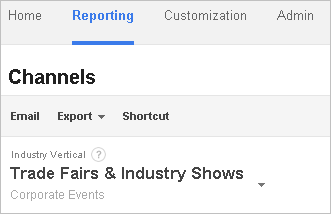Add Context to Web Analytics with Comparative Analysis

Analyzing your current data set by comparing it to a previous period or industry benchmarks can enable you to obtain constructive insights and establish meaningful correlations. It can also help you gain important insights as well as identify hidden trends which may be impacting the entire ecosystem around you.
When applied to your web analytics, comparative analysis can throw more light on conversions, device usage, and much more.
Here are three ways in which you can add context to your web traffic analysis:
1. Compare date ranges:
Overlay monthly, quarterly or annual data points with equivalent periods in the past to trace significant growth or decline in traffic, conversions and bounces alongside different parameters. For example, comparing device usage in the weeks leading up to your current and previous events may reveal if there is a consistent trend or significant change in the proportion of traffic coming from mobile devices.
2. Compare current websites:
If you are managing more than one website, then comparing web analytics for these properties could help you perceive how similar or different audiences interact with your content based on geographical locations, promotional emails or paid advertising. If you're consistently sending traffic from a main website to a sub site, you can analyze traffic flows, session length, etc. In Google Analytics you can link two websites with a unified tracking code to facilitate this. Details are available here: https://support.google.com/analytics/answer/1034342
3. Compare with Benchmarks:
Be it at a regional or global level, gauging your web traffic data by comparing with industry benchmarks can be an invaluable exercise. The exercise will reveal the areas in which your website is doing better and lagging behind when compared to your competition. Looking at benchmark data points can also help you understand your audience better. For example, if there's a particular month in which web traffic spikes across the industry then you may wish to time your promotional campaigns to make the most of either the active or the lean periods. Google Analytics now provides access to benchmark reports which can be filtered by verticals, channels, audience size and much more. View this page to learn how to enable this tool in your instance of Google Analytics: https://support.google.com/analytics/answer/6086666


Add new comment